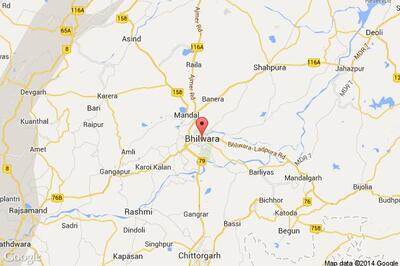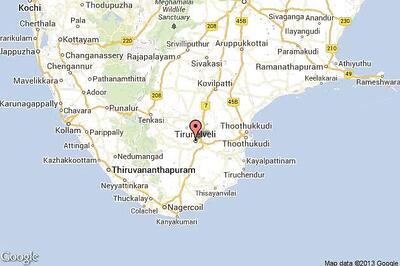
views
Addressing nutritional deficiency key to tackling TB
Tuberculosis (TB) and malnutrition are two important issues that have devastating impact on the lives of millions of poor in India, often in the prime of their productive lives. TB and malnutrition are closely intertwined. TB was referred to as ‘consumption’ before the advent of anti-tubercular drugs because the disease seemed to consume the individual, with their weight drastically dropping as the disease progressed. Significant wasting is a cardinal feature of untreated TB.
India suffers with a twin burden of malnutrition and TB and this deadly combination continues to threaten the health and well-being of lakhs of people in India. Our country has the highest number of malnourished children in the world with 42 percent of the children being underweight.[i] India also has the highest number of TB cases in the world with 2.1 million new cases emerging in 2014 and around 240,000 Indians succumbing to the disease in 2014.[ii]
Nutrition answer to reducing development of TB
There is a higher likelihood that latent (inactive) TB may progress into an active form when a person's immunity is compromised. Malnutrition severely impairs a person’s immunity and leaves them prone to developing infectious diseases such as TB. Both protein-energy malnutrition and deficiencies of vitamins and minerals increases risk of developing TB. It has also been observed that TB patients who are malnourished have delayed recovery and higher mortality rates than well-nourished patients. Malnutrition is an important factor that contributes to the high morbidity and mortality from TB seen in food insecure populations.
Since the development of TB is higher in malnourished populations, improving the nutrition of the population can prove to be one of the most important interventions for reducing TB incidence; a systematic review has estimated a 13.8% decline in TB incidence per unit increase in BMI.[iii] Nutritional supplementation can help stabilize a person's nutritional level and help in recovery. It can result in strengthening the immune system, faster sputum clearance and faster weight gain.
Providing food supplements to members of the community can lead to better treatment uptake and greater treatment adherence.[iv] A patient-centered approach by providing food rations to active TB patients and their households along with education and counselling can prove to be beneficial in aiding the patient’s recovery, stem the spread of TB in the community and improve treatment outcomes.
Addressing nutritional deficiencies for people with multi-drug resistant TB is particularly important as they require a longer treatment regimen and the probability of them requiring chronic and palliative care is higher. Counselling patients to consume the right kind of food is essential. Increased dietary intake during treatment is very important as the body has to compensate for the increase in energy expenditure due to recovery and manage the symptoms and side-effects of TB drugs, such as nausea and vomiting, anorexia, diarrhoea and altered taste.[v]
Therefore, nutritional counselling and providing nutrient rich food for TB patients as part of Direct Observed Therapy, Short-Course (DOTS) can prove to be extremely valuable. A number of TB programmes around the world have included a nutrition aspect to the treatment regime. In Mumbai, as part of the Mumbai Mission for TB Control, the patient support programme includes nutritional supplements to TB patients. As part of the programme, daily meals are provided to 393 patients in 23 centres. As part of a pilot project, protein rich foods like Banana, milk, chikki and protein powder are given on alternate days to 76 paediatric patients.
Reducing malnutrition will reduce TB incidence
India has been in the forefront of providing food security to its population through the National Food Security Act and public distribution system. Given the magnitude of the morbidity and mortality associated with TB, the link between food insecurity, malnutrition and TB, we need to ponder over the need to include nutrition supplementation to the Revised National Tuberculosis Control Programme(RNTCP) services. We are of the hope that nutrition supplementation as an adjunct therapy in management of TB becomes a reality in India and this will help in our fight against the deadly scourge of TB.
A complete diet, containing all essential macro- and micronutrients, is necessary for the well-being and health of all people, including those with TB infection or TB disease. Undernutrition has been identified as a major contributor to the development of TB and reducing malnutrition should be a key focus area in the country’s fight against TB.
(Author Dr Rajan Sankar , Senior Advisor, Nutrition, Tata Trust. He is a medical graduate from the University of Madras with a specialisation in internal medicine and endocrinology. Prior to Tata Trusts, Dr. Sankar was country manager, India and Senior advisor, South Asia, Global Alliance for Improved Nutrition (GAIN) and supported GAIN’s program development and grant, management in India. Prior to joining GAIN, Dr Sankar was a project officer in the Child Development and Nutrition section of UNICEF in India. In 2001, he retired as Colonel from the Indian Army Medical Corps after 24 years of service. He has published more than 70 scientific papers in national and international journals)




















Comments
0 comment